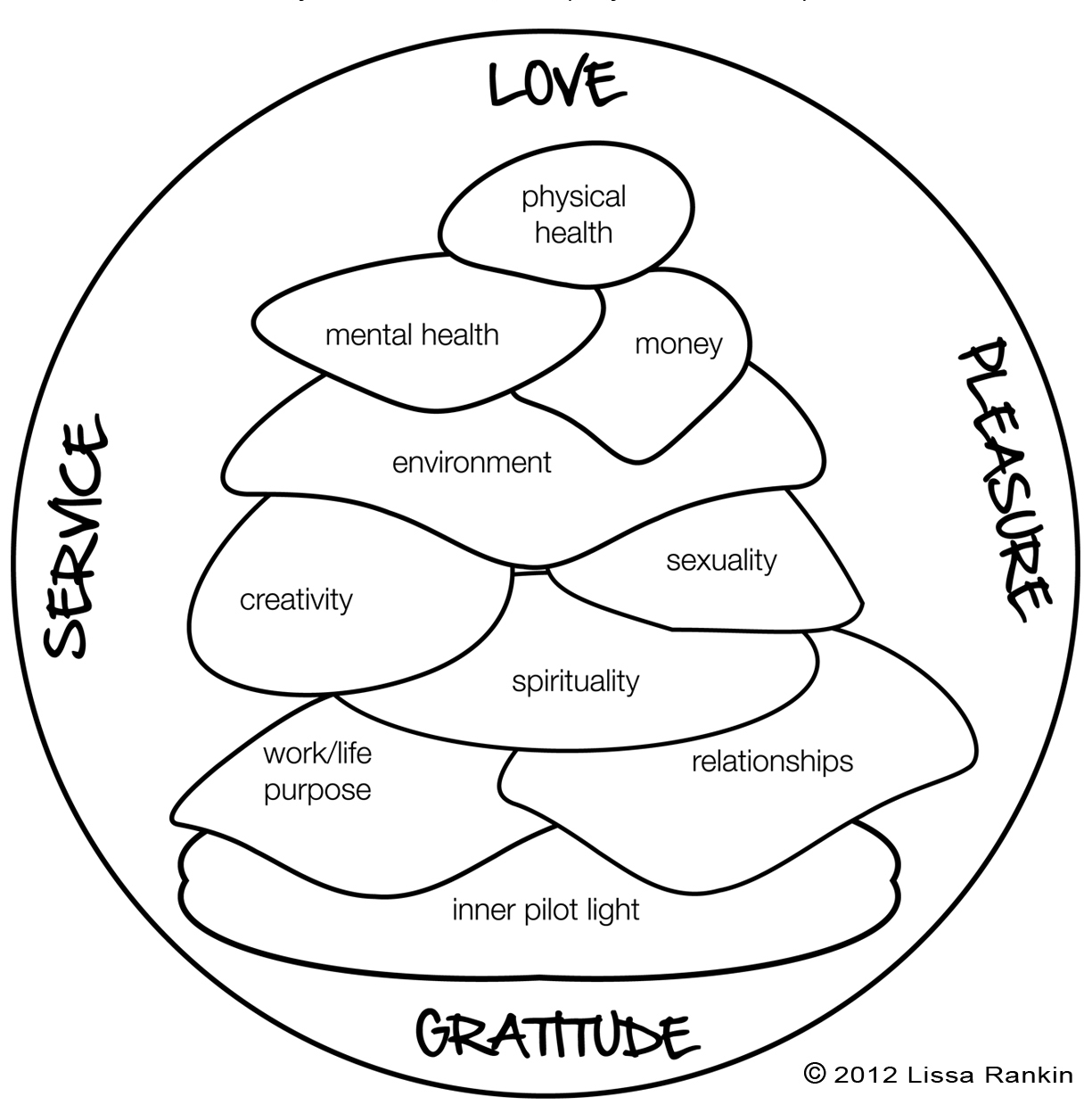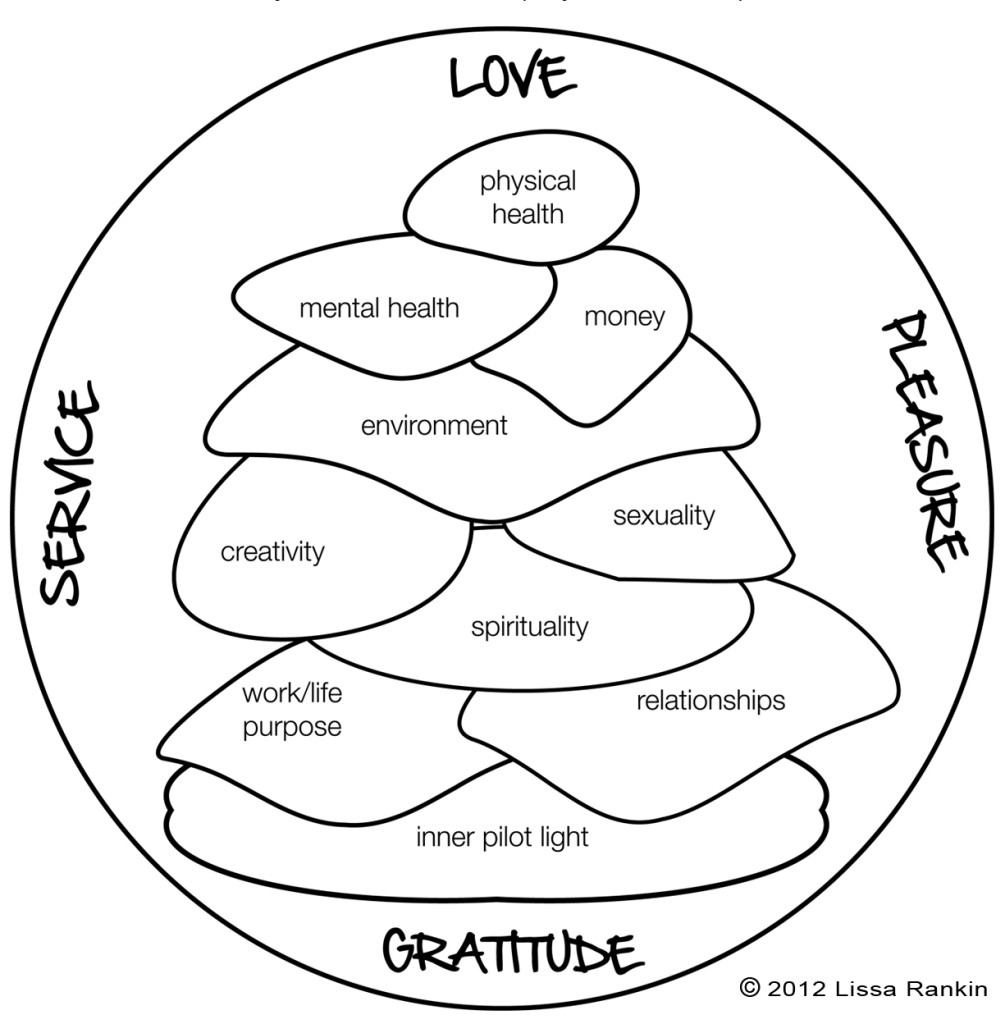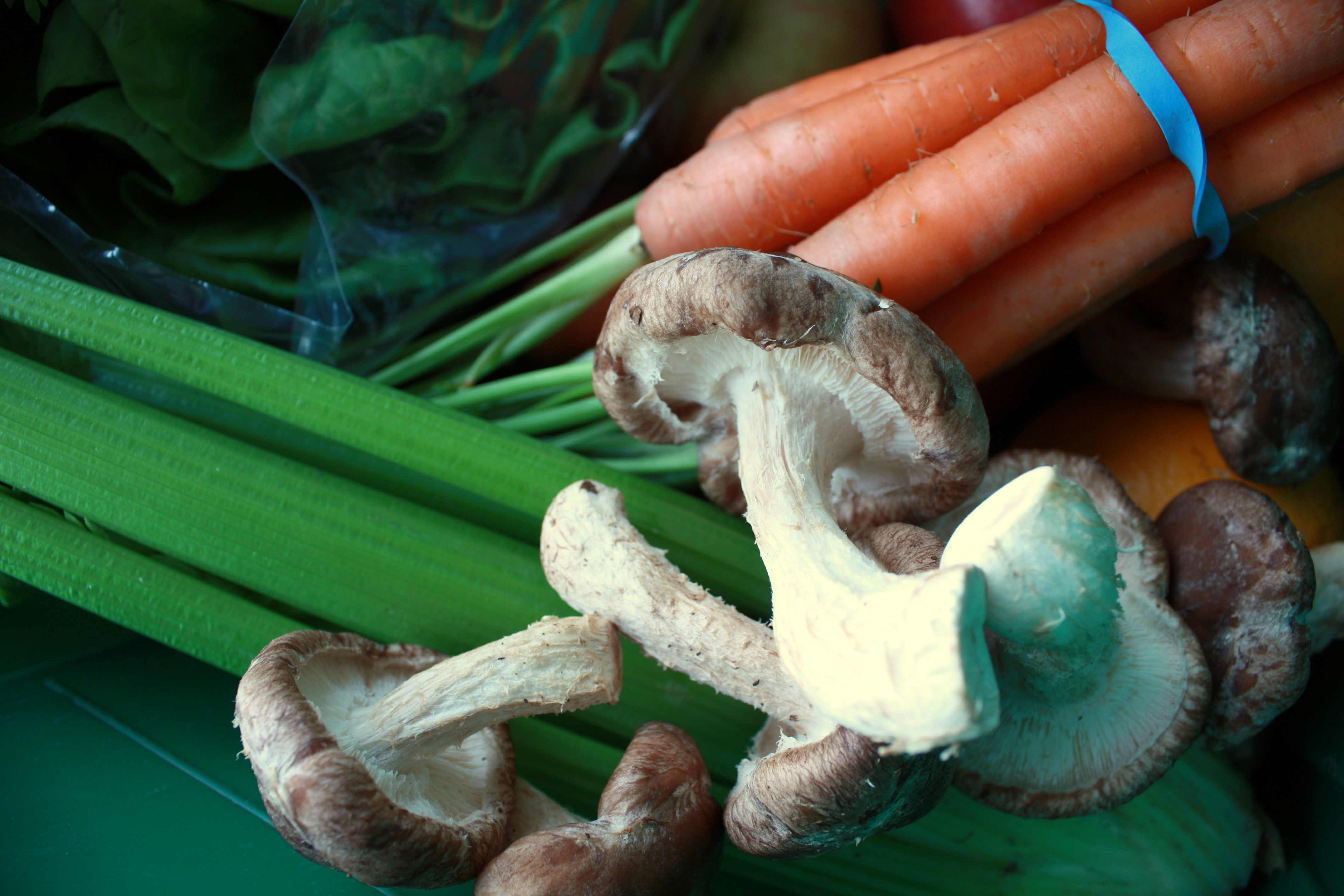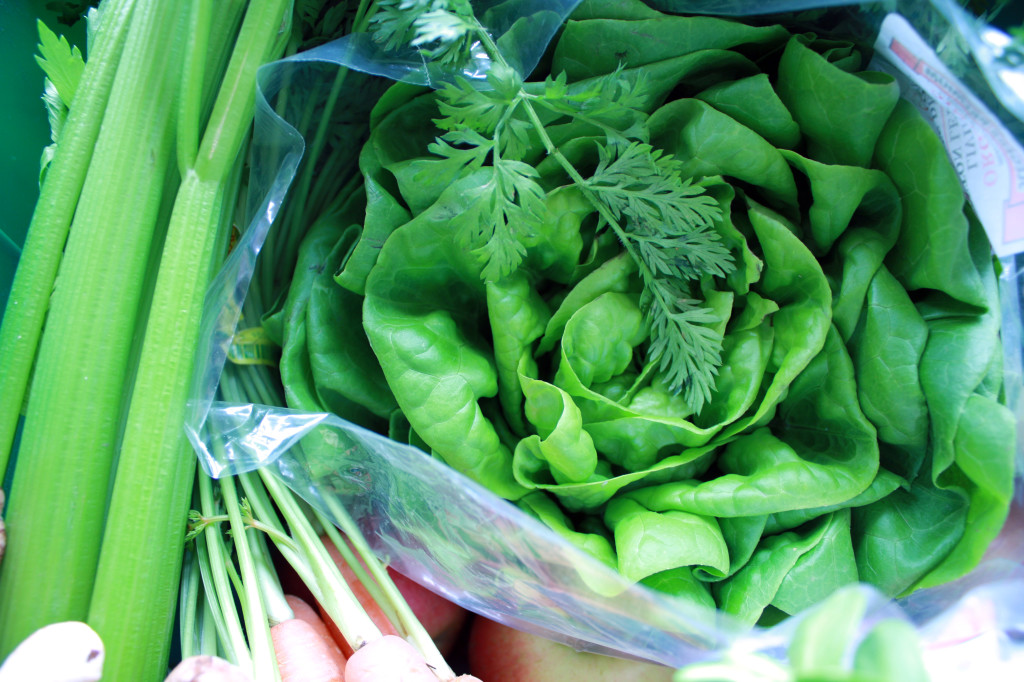Ah, spring. Mother Nature is always a bit confused this time of year, and on this particular gloomy weekend, I wanted to express the awesomeness of one of my favourite past-times: journaling. It isn’t a fun time to be outdoors, so when better than now to spend some time on a little introspection and self-exploration?
Emotional Health and Journaling
The holistic approach to health is all about addressing the issues of a person as a whole rather than their individual symptoms. There are so many more components to health than just diet and exercise. Your physical health is just one small part of your overall health. In Lissa Rankin’s “Whole Health Cairn”, she depicts several aspects of health as a part of an inukshuk. If any one piece is missing, the whole thing collapses.
Keeping a journal is one of my favourite ways to address many parts of the “Whole Health Cairn”, Which parts you address will, of course, depend on what you decide to write about on any given day.
Why keep a journal?
Journaling is a very meditative experience and can be a great way to organize our busy minds, keep track of our dreams and goals, and explore our thoughts.
I’ve kept a journal for as long as I can remember, and my methods of doing so are ever evolving. I’ve kept sketchbook journals, fill-in-the-blanks journals, food journals…
No matter how I go about it, I’ve always found that journaling is a great way to put things into perspective. Sometimes, the events of our daily lives, and our thoughts, can be blown out of proportion and overwhelm us. Writing down our thoughts and re-evaluating them can help us to look at these events with a more realistic and levelheaded mindset. Our thoughts are just thoughts. They can be as positive or negative as we allow them to be.
What should you journal about?
Feel free to write about anything and everything you feel like! Your journal doesn’t have to be a sterile space; use it as an extension of your wacky, wild, and creative brain. Write about your day and things you want to remember. Make lists of your goals. Make lists for your grocery shopping. Sketch and doodle. Brainstorm. Keep your journal by your bed so that you can grab it and start documenting you dreams while your eyelids are still stuck together, before you begin to forget things. Write down what your grateful for. Write a story!
When should you write in your journal?
Whenever you feel like it! I bring my journal and a pen with me everywhere I go, just in case an idea hits me, or there is some element of my day I want to go back and explore. You can turn journaling into a daily ritual or as a way to unwind in the evenings. For example, take an hour before bed to grab your journal and a cup of tea, and write about your day. If something upsetting happened that day, writing it down can help you vent your frustrations and go to bed with a clear mind. If something amazing happened that day, writing it down is a way to relive it and remember each brilliant detail.



